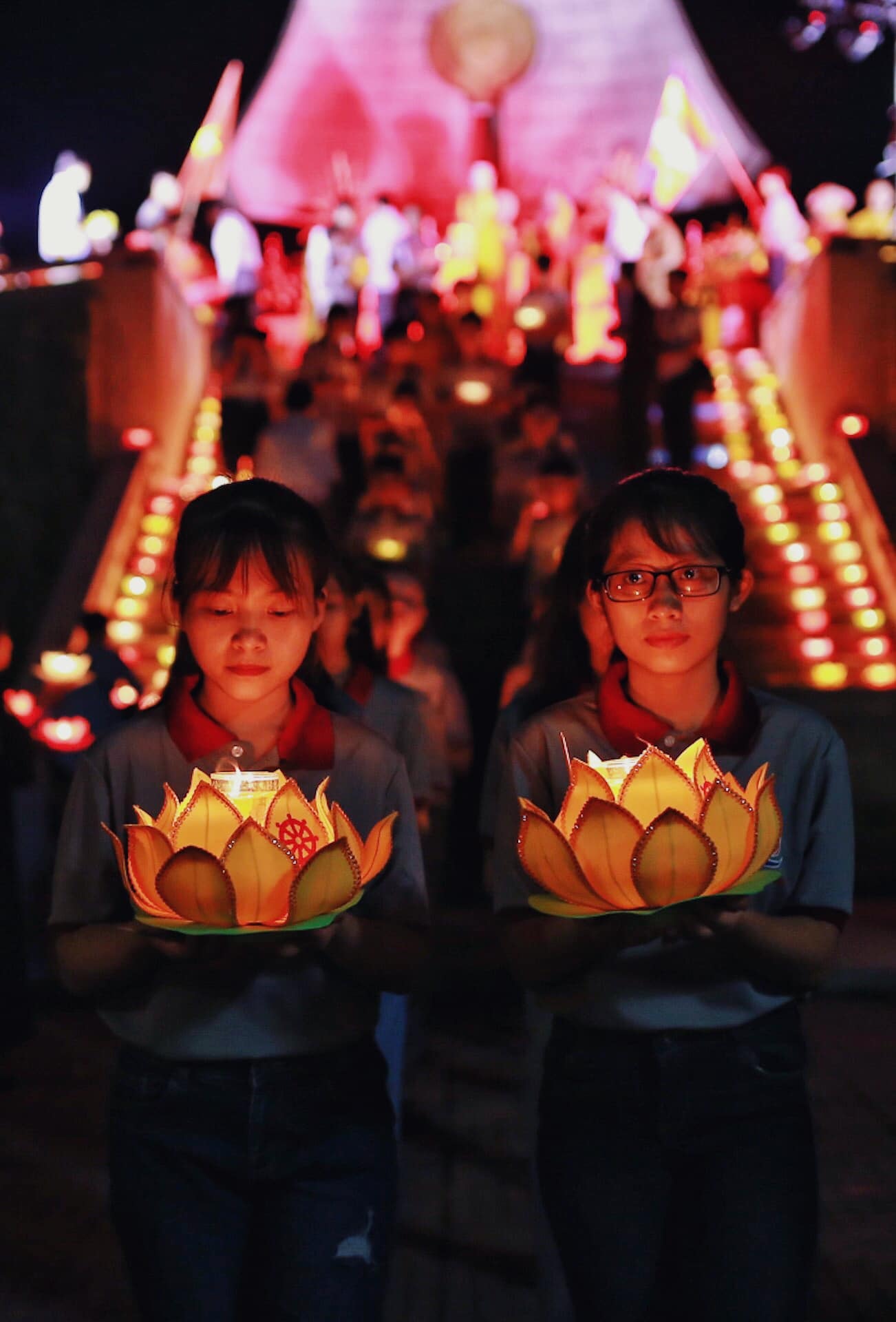Vu Lan season thinking about the Four Graces in Buddhism
(Baonghean) - One of the noble virtues of human beings, regardless of ethnicity, is to repay the kindness of parents.
Filial piety in Vu Lan Festival
For the Vietnamese people, that is called filial piety. The introduction of Buddhism - a religion close to the concept of life and daily behavior of people has contributed to enriching traditional cultural and ethical values by blending religious rituals with human ethics.
The annual Vu Lan festival has therefore become a folk belief, an occasion for each person to show filial piety and repay the kindness of birth and upbringing of their parents.
In the Heart Sutra, the Repaying Grace Chapter, Sakyamuni Buddha taught that all people must remember the Four Graces. These are: the Grace of parents, the Grace of sentient beings, the Grace of the nation and society, and the Grace of the Three Jewels. Among the Four Graces, the first is the Grace of parents to their children. Each child must cherish, preserve, and find ways to repay; must always strive to live, study, and work well; repay with respect, obedience, diligence in practicing good Dharma, and support parents in their old age.
|
| During Vu Lan season, pagodas often organize prayers for Buddhists so that the souls of deceased grandparents and parents can be reborn in the Pure Land. Photo: Hai Vuong |
Being harmonious at home, being friendly and harmonious in society, not being tempted by evil, not making parents upset is the best way to show children's filial piety to their parents. For Vietnamese people, filial piety is filial piety (filial piety), filial piety (care, nurturing), filial piety (respecting parents and respecting older siblings), filial piety (being filial to parents and being in harmony with younger siblings)...
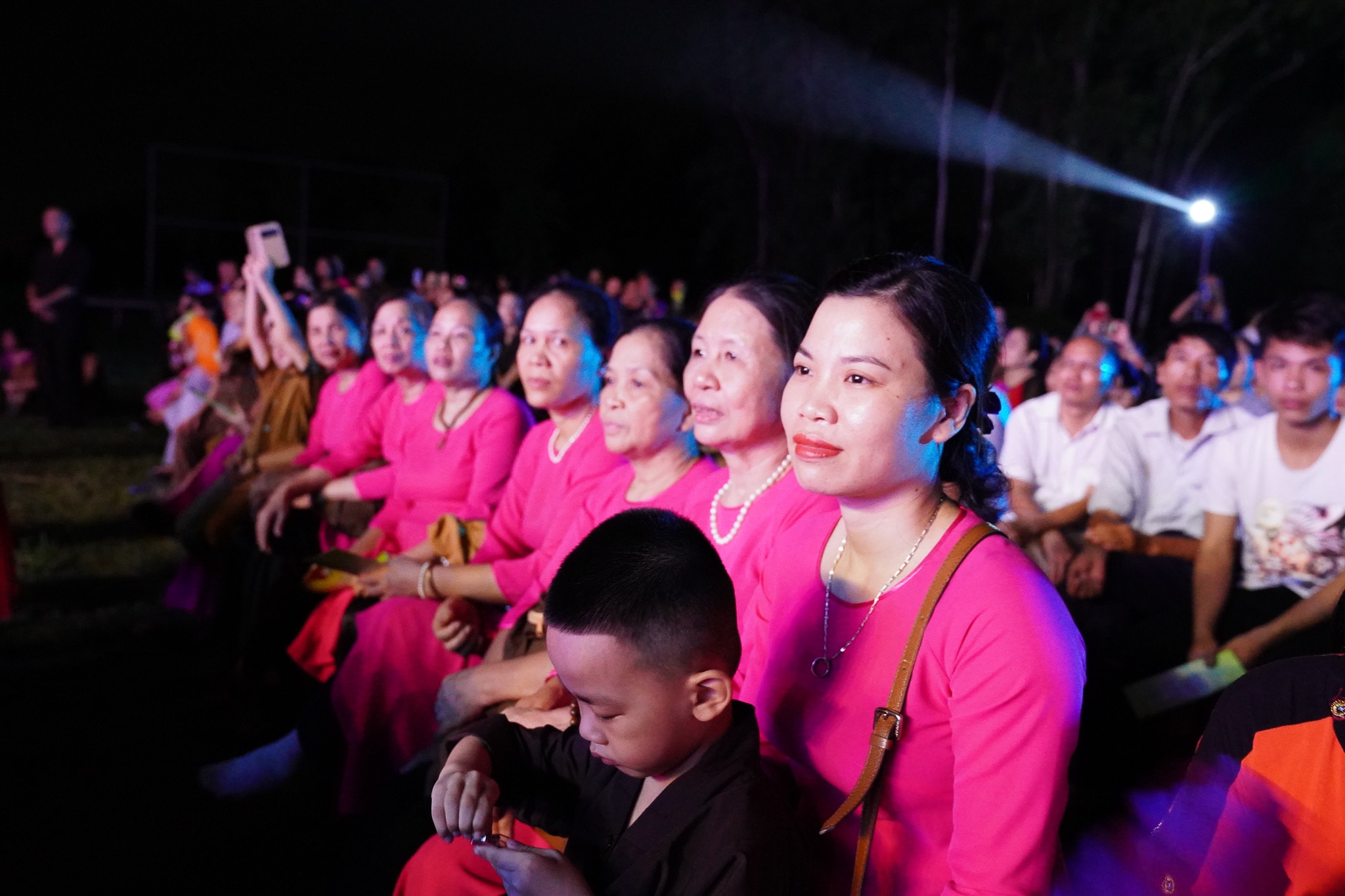 |
| Since the Buddhist filial piety festival, Vu Lan Festival has become a familiar event to many people, carrying the profound meaning of gratitude and filial piety of Eastern people. Photo: Ho Chien |
“Thousands of scriptures and ten thousand books all take filial piety as the first.” That is, thousands of scriptures and ten thousand books all take filial piety as the first. Therefore, repaying parents’ kindness through daily support, care when sick, ill... is always considered the first criterion in evaluating filial piety.
The modern pace of life always draws people into its hurried and busy cycle. This leads to a change in the concept of ethics and codes of conduct of some people. But no matter what, the word "filial piety" always retains its meaning. It is the respect and appreciation of the parents' merit.
Originated from the story of Maudgalyayana Bodhisattva's filial piety to his mother. Through his path of practice, he freed his mother's soul from the cycle of sin and brought her to nirvana.
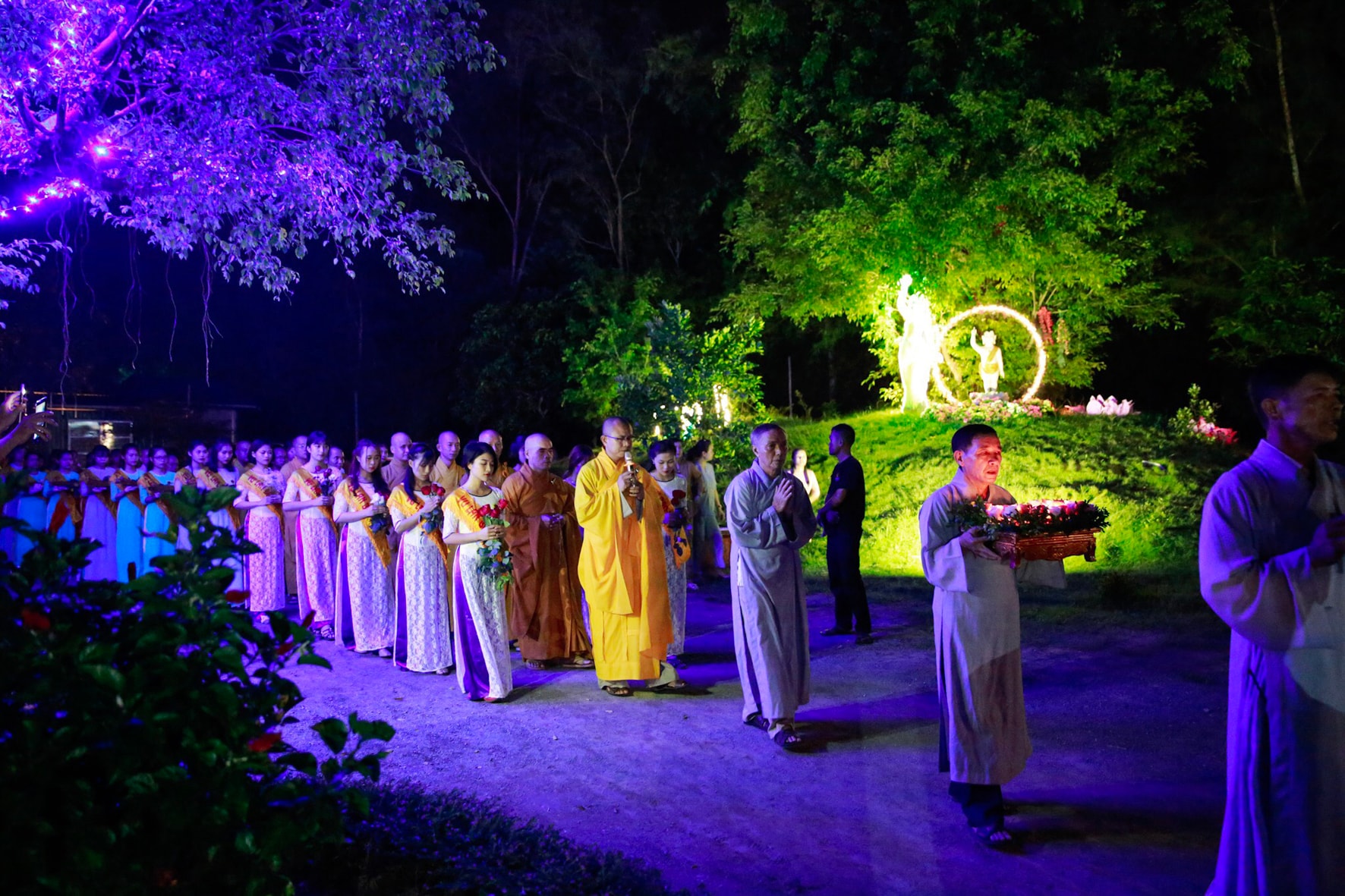 |
| Vu Lan ceremony at a pagoda in Vinh city. Photo: Hai Vuong |
From a ritual imbued with Buddhist culture, Vu Lan Festival in July every year has gradually become a traditional folk religious activity of the Vietnamese people. Vu Lan is an occasion for family reunion; children and grandchildren ask and share with grandparents and parents about joys and sorrows in life, pray for parents to enjoy blessings; dedicate to ancestors, light incense and pray for the deceased's soul to be reborn in the Pure Land.
During Vu Lan season, pagodas often organize prayers for Buddhists to pray for the souls of deceased grandparents and parents to be reborn in the Pure Land.
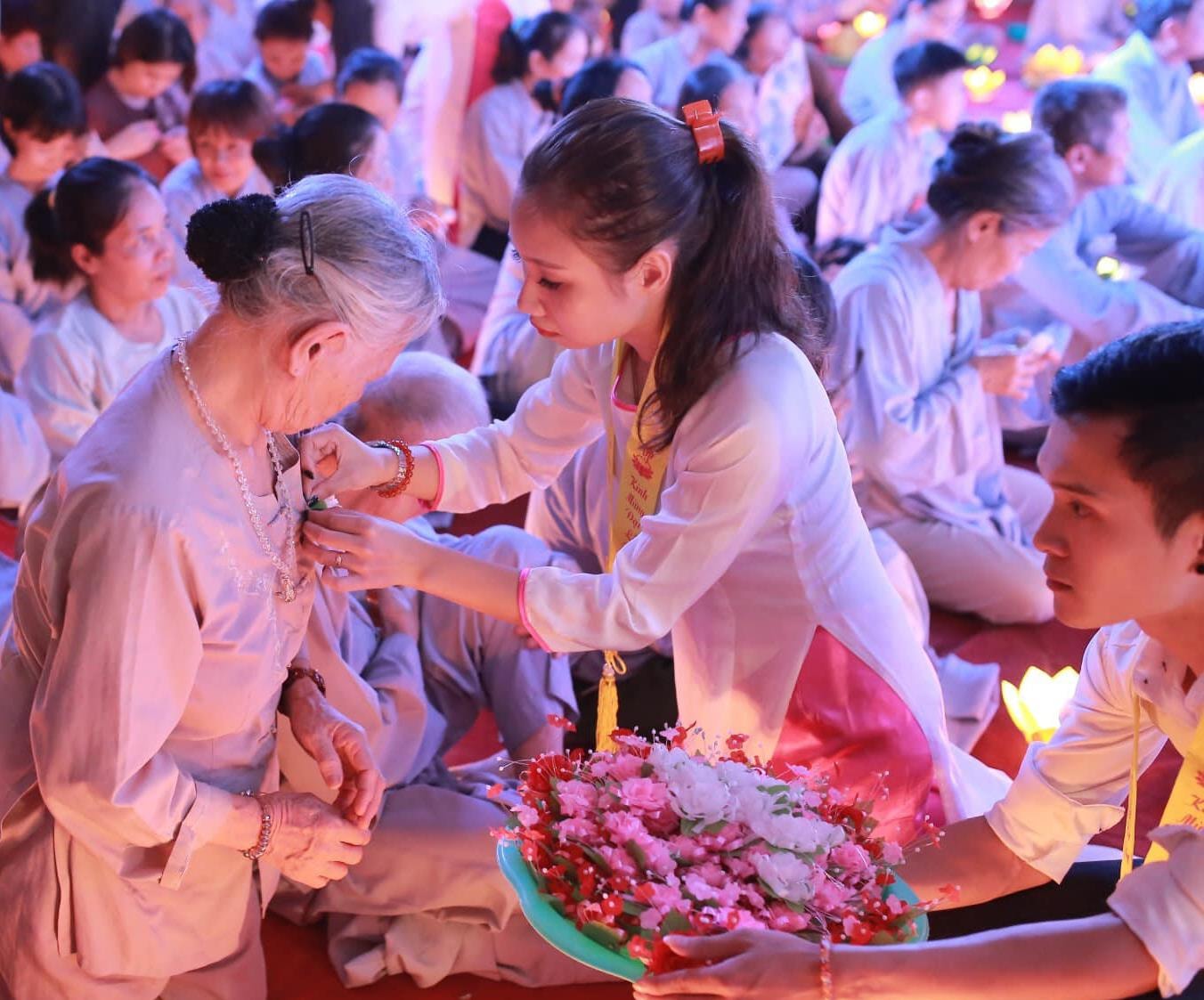 |
| The White Rose Pinning Ceremony during Vu Lan season is for the person wearing the white rose to remember their deceased parents. Photo: Hai Vuong |
Life is colorful, each person has their own way of showing filial piety to their parents, but it is not just about making up for their parents' material needs when they are old and sick, but more importantly, it is about caring for and sharing with them the simplest and most sincere things. There is a folk saying: "A piece of betel leaf is beautiful in the person who wraps it, but beautiful in the person who offers it!"
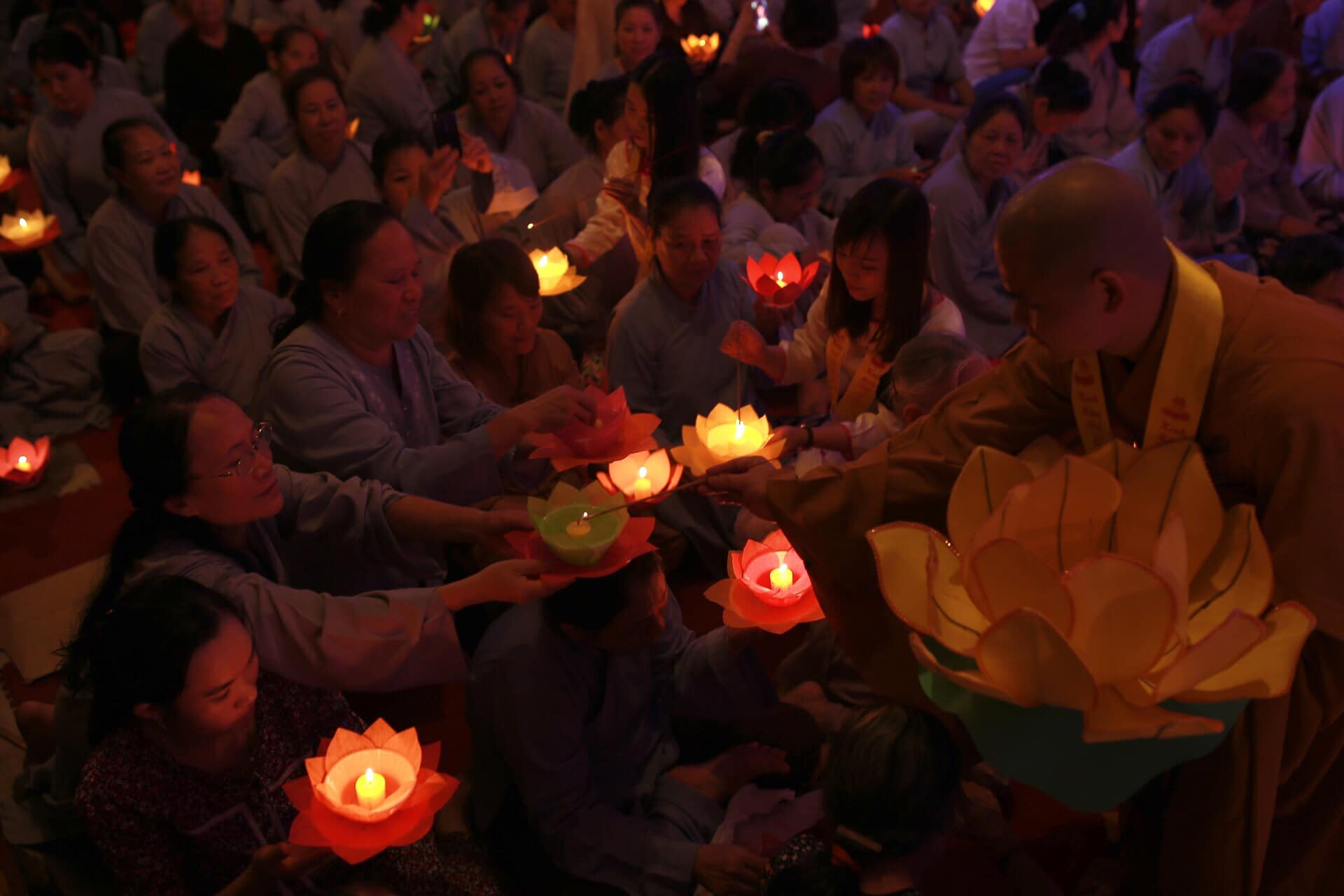 |
| Vu Lan ceremony at Diec Pagoda (Vinh City). Photo: Hai Vuong |
Worse, there are unfilial children who consider their elderly parents a burden, so they neglect, even beat and mistreat the ones who gave birth to them. Therefore, there are elderly people who have no place to rely on, or cannot stand the "bad words" of their children, have to wander around to make a living or live in social protection centers, rely on Buddha, and rely on the compassion of the community. These are acts that show the moral degradation of some people that society needs to condemn, the law needs to intervene to join hands in building a life filled with love and responsibility.
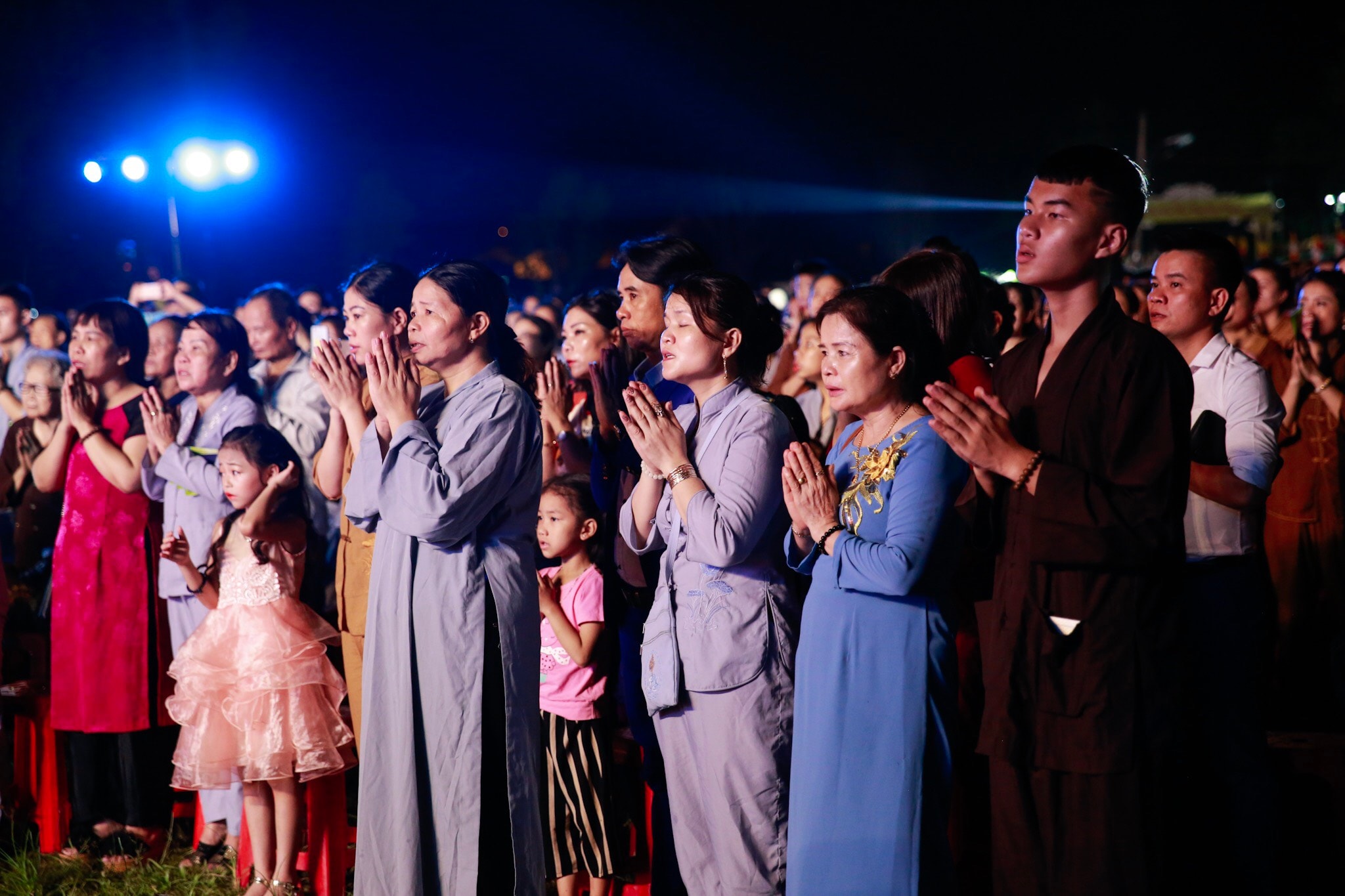 |
| The annual Vu Lan Festival is an event that has gradually attracted the attention of Vinh city residents in recent years. Photo: Hai Vuong |
The Four Graces - an important ethical category that represents the affection between people. The Four Graces exist obviously in life and are objective, conveying the values of truth, goodness, and beauty according to the Buddhist spirit, containing the spirit of great heroism, great strength, great compassion, and great wisdom; bringing the vitality of peace, freedom, and equality to humanity with the ambition to liberate all bonds of suffering for people and all things.
Vu Lan season is an occasion for each of us to think about the Four Graces, to think about the filial piety of children towards their parents and grandparents - that is the most important core thing for each person.

